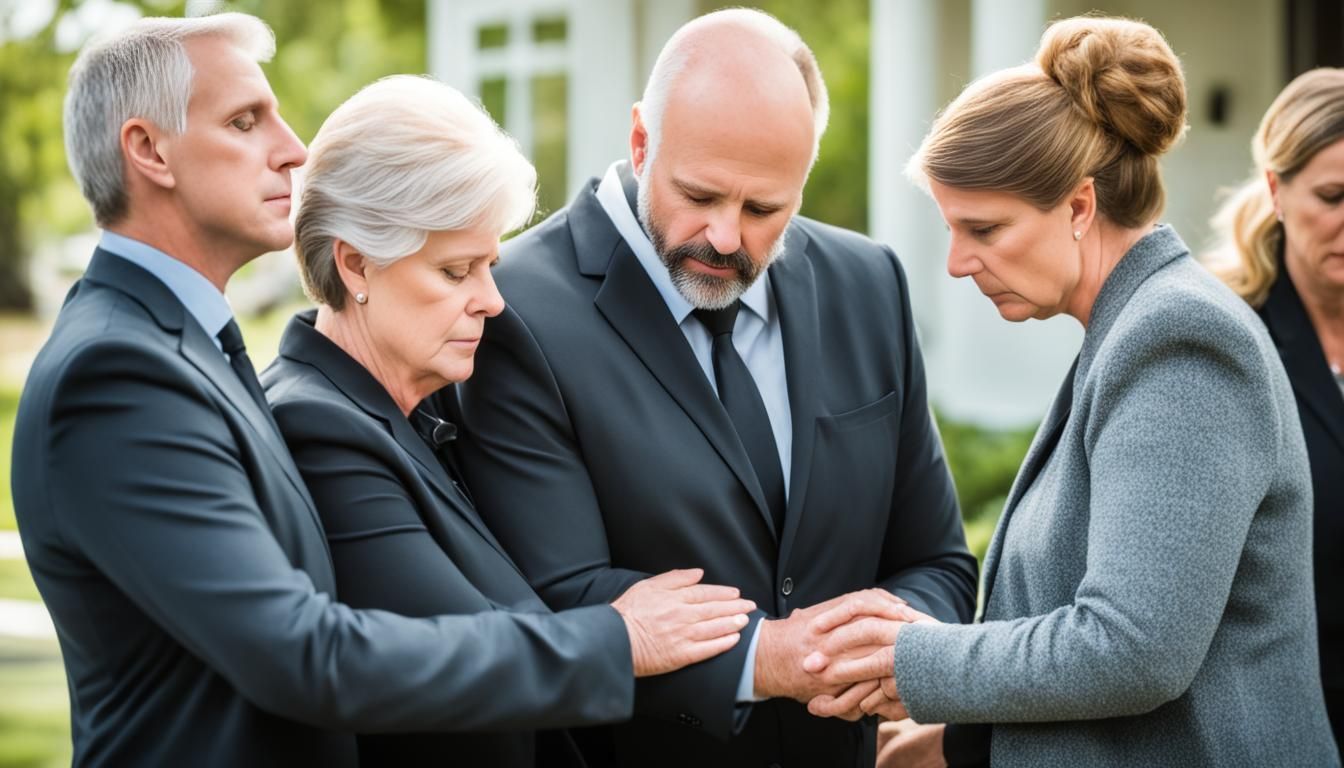How to Help a Grieving Friend
How to Help a Grieving Friend
Did you know grief can increase the risk of death by 41% in six months? The impact of grief isn't just emotional; it affects physical health too. This highlights why grief support for a friend is critical. When you're there for a grieving friend, don't worry about perfect words or actions. What matters is your presence, whether by listening or helping with everyday tasks to lighten their load.
Grief affects everyone differently, but the need for connection and support is universal. Being there, whether to offer a hug or a listening ear, starts the healing process. In the tough journey of grief, filled with depression, anger, and isolation, your support is a light of hope. Remember, comforting a friend in grief is about being sincere and showing up, no matter what that involves.
Key Takeaways
- Avoid letting the fear of imperfection prevent you from offering support to a grieving friend.
- Understand the varying emotions of grief and acknowledge its unique impact on individuals.
- Listening often provides greater comfort than trying to find the 'right' words.
- Practical help with everyday tasks can significantly alleviate a bereaved friend's burden.
- Genuine presence and continued reassurance are vital for someone navigating grief.
Understanding the Grief Journey
Understanding grief is key in helping a grieving friend. It does not follow a set path. Instead, it's like a rollercoaster, with ups and downs that vary for everyone.
Recognizing that each person's grief is different helps us support them better. It means their feelings of guilt, anger, or sadness are their own. Through this understanding, we can offer real and meaningful support.
Healing from grief takes time, often 18 to 24 months, but it varies. It's important not to dismiss their feelings or try quick fixes. Listening and showing empathy is the best way to help.
Edwards Funeral Service acknowledges how diverse grief can be and offers resources to help friends and family during hard times.
Knowing how to practically help someone grieving is crucial too. Helping with everyday tasks or just being there can make a big difference. Our main goal is to be empathetic and supportive, no matter what.
Personalized Support for the Bereaved
When you're helping a friend who's grieving, it's important to really understand what helps. Being there for them means more than just your presence. It's about knowing how to support them in ways that matter.
Listening Is More Helpful than Speaking
Really listening is key when you're there for a grieving friend. Instead of trying to fix things, let them share their feelings and thoughts. Often, being silent is just as powerful as words, offering support that advice cannot.
Acknowledging and Validating Emotions
Grief brings many emotions to the surface, and acknowledging these is crucial. Support them by accepting their feelings, whether they're angry, sad, or quiet. Sometimes, helping with everyday tasks can be a big help too.
Respecting the Individual Nature of Grief
Grief is very personal. Avoid using clichés and let your friend share memories in their own way. Realizing they might need time alone is important, showing your support isn't just about being there but understanding their needs for space.
Practical Assistance for Your Grieving Friend
When a friend is dealing with loss, helping them practically is key to showing you care. Knowing ways to assist a grieving friend can turn your good intentions into real help during their tough time.
Providing Comfort Through Acts of Service
Helping with daily chores can greatly ease the stress on someone grieving. You could offer to buy groceries, clean, or pay bills. These acts of comforting a friend in grief make it easier for them to accept the help they need.
Small Gestures Can Make a Big Difference
Little things mean a lot to someone who is mourning. Bringing a meal or just sitting quietly with them can offer great comfort. It shows you care and are committed to being there for a friend in mourning as they grieve.
Consistency in Support and Care
Continuing to offer support is very important, especially as time goes on. Keeping in touch regularly helps them feel less alone. Grief support for a friend is crucial long after the funeral ends. Your steady support brings comfort and stability.
| Support Type | Example Actions | Impact |
|---|---|---|
| Acts of Service | Cleaning, shopping, financial management | Reduces everyday stress |
| Emotional Support | Regular visits, phone calls | Decreases feelings of isolation |
| Consistent Presence | Continuous check-ins, being available | Provides stability and reassurance |
Conclusion
Grieving is an intricate blend of feelings, unique for everyone. It's made of memories, love, and loss. This process tests our resilience and ability to adapt to major changes. When it comes to supporting a grieving friend, it's the small acts of kindness that matter most. They bring warmth and comfort. Edwards Funeral Service understands this sensitive time. They provide tools and tokens of remembrance to help people through their grief.
Loss is complex, and helping a grieving friend requires patience. It also needs a willingness to listen and provide emotional support. In hard times, just being there to listen or sit in silence can mean everything. This can light up the dark path of grief for someone.
Edwards Funeral Service goes beyond just the immediate response to loss. They offer online obituaries, environmental tributes like tree planting, or simply sending a card. This helps honor the deceased and supports the living. The essence of comfort is knowing that, despite changes, the support from friends and community remains. This steady support helps us all.
FAQ
What are some ways to assist a grieving friend?
You can help a grieving friend by listening well and validating their feelings. Offer help with their daily tasks or just be there for them. Avoid clichés. Let them share their feelings without judgment.
How can I provide grief support for a friend who is mourning?
To support a mourning friend, show you understand their grief is personal and complex. Be there with a caring attitude. Let them know they’re not alone. Recognize their pain and be flexible to their needs and timing.
What does it mean to listen more and speak less when supporting a grieving friend?
Listening more means letting the grieving person share their feelings and stories. Don't offer unsolicited advice. Be patient and present. Encourage them to talk when they're ready.
Why is it important to acknowledge and validate a grieving friend's emotions?
By acknowledging their emotions, you help your friend feel understood and accepted. It shows their feelings are normal. They can safely express themselves without fearing judgment.
How should I respect the individual nature of my friend's grief?
Understand everyone grieves differently. Don't set expectations or timelines for their mourning. Be adaptable and offer steady, gentle support.
What kind of practical assistance is most helpful for someone who is grieving?
Practical help can be doing chores or helping with bills. Offer specific assistance to make it easier for them to accept. This support can relieve stress, helping them heal.
Why are small gestures significant when comforting a grieving friend?
Small actions like sending a meal or a card show you care. They help the grieving person feel supported. These gestures matter a lot during their grieving time.
How does consistency in support and care benefit a grieving friend?
Being there consistently offers comfort and stability after the funeral. Keep checking in. Your ongoing presence helps them feel not alone in their healing journey.










